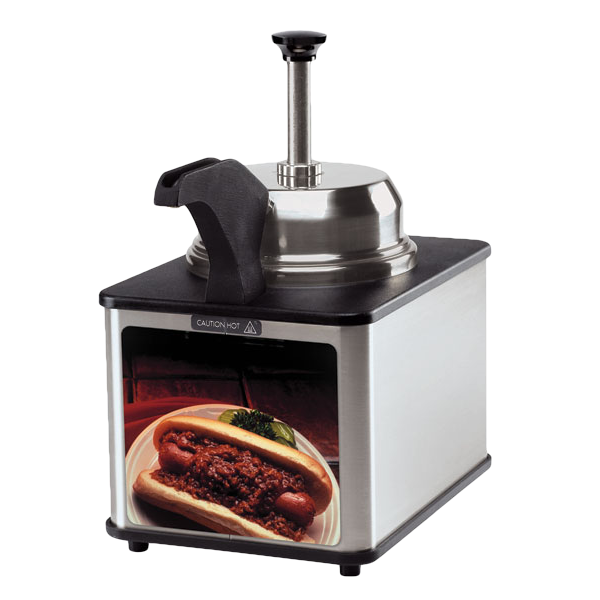this is a subject that the USA gov and China even agree on. It is such a shame westerners have such a negative reaction to nuclear energy. but it isn't as profitable as fossil fuels/selling new electric cars so :meow-shining:
https://www.energy.gov/ne/articles/advantages-and-challenges-nuclear-energy
https://www.globaltimes.cn/page/202106/1227103.shtml
as is the citizens/worker's solution to every industry's problems, nationalize them!
but im pretty sure it would unironically be better for the global environment to have 1 Chernobyl every year if it replaces emissions from fossil fuels
Yeah Chernobyl is basically a wildlife reserve now lol
But didn't it take the entire Soviet economy and the entire CCCP collectively sprinting at full tilt to stop the disaster from turning a massive chunk of Europe completely uninhabitable?
I think Libs would be happy to let the Black Belt become completely uninhabitable if a meltdown occurred there, especially if saving it meant shutting down the entire economy down and potentially using up something like 105% of all liquid nitrogen stocks and production capacity in NATO for weeks to stop the meltdown.
tldr: not really, the USSR had a very slow initial response and the only real danger was a second explosion in the coolant system that would have caused what you are talking about. Any modern designs can not behave in this way unless intentionally brought to do so
basically, the design of the emergency reactor shutdown and the backup coolant system were both REALLY bad if they needed to be used. When the emergency shutdown was used it increased the reactivity for a split second instead of decreasing it, the result was the reaction’s entire expected power output in its lifespan produced in a split second. Then the emergency cooling system was damaged from this and nearly caused a second explosion, which was stopped by 3 volunteers who exposed themselves to lethal doses of radiation.
You got me, my entire understanding of Chernobyl was from watching the HBO series and a YouTube video talking about how the scientist guy was a :LIB: :deeper-sadness:
I was going to say you're completely underestimating the liberal ego and that they would never allow such a disaster to happen on the world stage while everyone is watching... but then I remembered the past two years.
That's the thing with nuclear power. We can talk about how the designs are very safe and disasters are very unlikely and so on, but a nuclear reactor ends up breaking in what are often rather preventable ways about once or twice a decade, sometimes quite catastrophically.
Nuke power got a bad rap because a bunch of the nuke reactors were intentionally made less stable so they could violently (in atomic terms) enrich Uranium to make bombs.
You drop the enrichment program from your reactors and wowee look at that, a much more stable design, akin to the kind you see on fucking nuclear powered submarines and aircraft carriers. The point I'm trying to make here is this: We have the technology.
Americans' distrust of nuclear reactors began in part because of a movie called The China Syndrome that came out the same year as the Three Mile Island meltdown . The movie depicts nuclear reactors as much less safe than they actually are, and even though little to no harmful radiation escaped containment at Three Mile Island, the hippies got freaked out. Nuclear energy became conflated with nuclear weapons because of of what you described, which didn't help things. Actually the reason for the meltdown was that most of the technicians were trained on Navy reactors which have different safety protocols.
Modern reactors are safer than older pressurized water reactors like Three Mile Island, and much much safer than graphite-moderated RMBK reactors like Chernobyl. I don't know a whole lot about boiling water reactors like the ones at Fukushima, but my understanding is that they're usually safe as long as you don't put them in a tsunami zone with the backup generators in the basement.
here i thought we'd relentlessly bullied the skeptics off here but at least one survivor is hanging on
fucking conversations around nuclear waste are so asinine, it's a-ok to fucking bury everything else and forget about it, but the shit that literally has an expiration date on the danger is somehow a Grave Issue.
Yeah fucking talk to me about how much an issue a couple thousand tons of spicy dirt is while this country is burying hundreds of millions of tons of trash in the ground
fucking conversations around nuclear waste are so asinine, it’s a-ok to fucking bury everything else and forget about it, but the shit that literally has an expiration date on the danger is somehow a Grave Issue.
Easy for you to say when you don't live in the country that the uranium was mined in. We literally have piles and mountains of toxic waste from open pit gold and uranium mines.
You're acting like anti nuclear lefties aren't also anti pollution generally
solar panels or wind turbines aren't environmentally free either, those costs are just more readily externalised than spicy rocks
Hold my beer...
spoiler
Nuclear Wind Power :posadist-nuke: :galaxy-brain:
Of course not they're just repeating cold war era nuclear energy propaganda
all the nuclear waste rn is still stored at the power plants, and radiation is minimal because of shielding, so I’m not sure what you mean
We just don't do that because then it would allow basically any country on earth to "legally" produce the fractional products for nuclear weapons
Depends on your reactor once again. Heavy water reactors don't require any enrichment at any point. If anything it would take more processing than the uranium going in
all the nuclear waste rn is still stored at the power plants
Here's a google search for anybody interested: the problem of nuclear waste.
big hole, throw it in, seal it.
the cons of fossil fuel waste are far worse than nuclear, which can, in totality, be stored in buildings right now.
which can, in totality, be stored in buildings right now.
Storing nuclear waste requires serious expenditure of time, money, and effort. Are you actually saying American companies (or the federal government) is capable of dealing with this problem? You can't just "store it in buildings".
The reason I gave you a google link is that you have no idea - zero - about what you're talking about. And I'm really not interested in a "But I think..." argument. Please check out the link.
Also, this is a really good documentary...
Into Eternity is a 2010 Danish documentary film directed by Michael Madsen, released in 2010. It follows the construction of the Onkalo waste repository at the Olkiluoto Nuclear Power Plant on the island of Olkiluoto, Finland. Director Michael Madsen questions Onkalo's intended eternal existence, addressing an audience in the remote future.
im saying that right now in totality it is stored in designated buildings/on site. and yes the government is capable of storing nuclear waste, they do it right now. right now there is not a solution for the next hundred thousand years for storage, but there is for the next hundred, which I think you would agree is crucial to combat climate change
yes the government is capable of storing nuclear waste
Oy gevalt!
"Capable" is supporting 1,000,000,000,000 tons of bullshit. If you're unwilling to learn, think, and reassess - there's nothing to be done. This convo is over.
u rite, you are seeing fossil emissions and the lack of any real substitute besides nuclear and consciously deciding that the issue of storage is more important than saving hundreds of millions of lives that unabated climate change will murder
welp, solved it! why hasnt the stupid government thought of this before?!
because it costs more money to make a big hole than just storing in on site.
short term profit > everything
oh i thought maybe it was because of things like water tables or geological conditions silly me
oh i thought you meant bc radiation would have adverse effects on the population
all the nuclear waste rn is still stored at the power plants,
Excuse me, what? The Shoshone have been complaining about the US placing nuclear waste on Yucca Mountain, one of its scared sites, for years.
The amount of easily mine-able uranium is limited. It's not like we could replace all fossil fuels with fission.
we have enough easily minable uranium for the next 200 years circa 2009, and with more efficient usage and thorium, experts do not see available uranium as a major limiting factor
I'm sorry, but you just need to Google "peak uranium" to see otherwise. It's not like there's a big pile of uranium waiting to be picked up. There are limitations and difficulties in getting uranium in time for use.
I hope that thorium fission works. But so far there are no civilian reactors using the technology.
idk this article seems to disagree https://www.scientificamerican.com/article/how-long-will-global-uranium-deposits-last/
This article doesn't say anything about scaling up uranium mining, which is what you're trying to do. Getting uranium is like getting oil: humans typically get the cheaper and easier deposits first. Later on, we're into shale oil.
There's an endless supply of articles if you Google "peak uranium", which you seemed to bother not to do. Gosh, look at American uranium production
well I'm advocating for a shift away from fossil fuels , so of course mining would scale up lol
And I don't know how else I can tell you that isn't feasible. I'm not even a nuclear skeptic. But fission (so far) isn't a simple panacea.
The science will save us argument is neoliberalism. Sadly I think that it distracts from the urgent need to overthrow the capitalist class.
we can not supply the global energy consumers with renewables currently, let alone the 1 billion people on earth that currently do not have access to electricity that will in the coming decades. they also take up a much larger area, solar takes up 75x more space and wind takes up 360x as nuclear
3 million solar panels = 1 reactor
If uranium ever becomes scarce on land, you can filter it out of seawater. Or use thorium reactors. There's enough uranium to last centuries, and enough thorium to last millennia.
I'm not saying that nuclear is better than renewables in every way, I'm saying that it's a viable technology for certain situations, and at the very least it shouldn't be phased out until we can get rid of fossil fuels. And with some development it could be even better.
I've read a couple books on nuclear energy and read up on some of the more recent developments. As others have said, nuclear power plants are much more compact than renewables of similar output, they provide reliable baseload power without the need for storage, and they're safer for workers than wind turbines or rooftop solar. The only major problem I see with nuclear right now is cost, and if we abolish capitalism that wouldn't be an issue.
I hope that we can pursue both renewable and nuclear at the same time, but I understand that in many ways renewables are a better deal if we have limited resources. If wind and solar become the primary sources of electricity we'll either need storage or some other source of power to fill in the gaps when the sun isn't shining or the wind isn't blowing. Also, high-heat reactors can replace fossil fuels in many industrial processes. So each has their strengths and weaknesses and can be used in complimentary ways.
I honestly haven't looked into uranium mining much, but I do know that solar panels require mining of certain rare-earth minerals, and most wind turbines are made of composite materials derived from petroleum. Storage of waste is pretty well solved, and spent fuel can be re-processed to extract the remaining useable fuel, or burned up in fast reactors.
Do you know how long it typically takes to design and build a nuclear plant? Or how much it costs compared to wind and solar? In a country like the US, it could realistically take decades. That makes it pretty much a non-starter as a near-term solution to climate change vs renewables. Renewables are also much cheaper to build and deploy, and lend themselves better to a more adaptable decentralized grid.
China has built and put plants into opperation withen ~5 years. The cost of nuclear is high because of the relatively low amount of nuclear plants, as more are made the economics of scale come into play. It is high-cost upfront to build a plant, but cheaper than renewables once a plant is in operation.
China has built and put plants into opperation withen ~5 years.
The Haiyang 1 and 2 reactors started planning in 2005 and began commercial operation in 2018 and 2019. The Taishan 1 and 2 reactors were bid in 2006 and also didn't begin commercial operation until 2018 and 2019. This is much longer than 5 years, and timelines in other countries of nuclear projects tend to be much longer.
The cost of nuclear is high because of the relatively low amount of nuclear plants, as more are made the economics of scale come into play. It is high-cost upfront to build a plant, but cheaper than renewables once a plant is in operation.
The cost of nuclear has actually been going up, while the cost of renewables has been going down:
The third risk of nuclear power related to its ability to reduce global warming and air pollution is the high cost for a new nuclear reactor relative to most WWS technologies. In addition, the cost of running existing nuclear reactors has increased significantly, and the costs of new WWS technologies have dropped so much, that many existing reactors are shutting down early due to high costs. Others have requested large subsidies to stay open. In this section, nuclear costs are discussed briefly.
The levelized cost of energy (LCOE) for a new nuclear plant in 2018, based on calculations by Lazard (2018), is $151 (112 to 189)/MWh, where $100/MWh equals 10 ¢/kWh. This compares with $43 (29 to 56)/MWh for onshore wind and $41 (36 to 46)/MWh for utility-scale solar PV from the same source (Table 7.9). A good portion of the high cost of nuclear is related to its long planning-to-operation time, which in turn is partly due to construction delays.
This nuclear LCOE is an underestimate for several reasons. First, Lazard assumes a construction time for nuclear of 5.75 years. However, the Vogtle 3 and 4 reactors, though will take at least 8.5 to 9 years to finish construction. This additional delay alone results in an estimated LCOE for nuclear of about $172 (128 to 215)/MWh, or a cost 2.3 to 7.4 times that of an onshore wind farm (or utility PV farm).
Next, the LCOE does not include the cost of the major nuclear meltdowns in history. For example, the estimated cost to clean up the damage from three Fukushima Dai-ichi nuclear reactor core meltdowns in 2011 (Section 3.3.2.2) was $460 to $640 billion (Denyer, 2019). This is equivalent to a mean of about $1.2 billion, or 10 to 18.5 percent of the capital cost, of every nuclear reactor that exists worldwide.
In addition, the LCOE does not include the cost of storing nuclear waste for hundreds of thousands of years. In the U.S. alone, about $500 million is spent yearly to safeguard nuclear waste from about 100 civilian nuclear energy plants (Garthwaite, 2018). This amount will only increase as waste continues to accumulate. After the plants retire, the spending must continue for hundreds of thousands of years with no revenue stream from electricity sales to pay for the storage.
The spiraling cost of new nuclear plants in recent years has resulted in the cancelling of several nuclear reactors under construction (e.g., two reactors in South Carolina) and in requests for subsidies to keep construction projects alive (e.g., the two Vogtle reactors in Georgia). High costs have also reduced the number of new constructions to a crawl in liberalized markets of the world. However, in some countries, such as China, nuclear reactor growth continues due to large government subsidies, albeit with a 10- to 19- year time lag between planning and operation (Section 3.3.1.1) and escalating costs.
In sum, before accounting for meltdown damage and waste storage, a new nuclear power plant costs 2.3 to 7.4 times that of an onshore wind farm (or utility PV farm), take 5 to 17 years longer between planning and operation, and produces 9 to 37 times the emissions per unit electricity generated. Thus, a fixed amount of money spent on a new nuclear plant means much less power generation, a much longer wait for power, and much greater emission rate than the same money spent on WWS technologies.
Officially China still sees nuclear power as a must-have. But unofficially, the technology is on a death watch. Experts, including some with links to the government, see China’s nuclear sector succumbing to the same problems affecting the West: the technology is too expensive, and the public doesn’t want it.
The 2011 meltdown at Japan’s Fukushima Daiichi plant shocked Chinese officials and made a strong impression on many Chinese citizens. A government survey in August 2017 found that only 40% of the public supported nuclear power development.
The bigger problem is financial. Reactors built with extra safety features and more robust cooling systems to avoid a Fukushima-like disaster are expensive, while the costs of wind and solar power continue to plummet: they are now 20% cheaper than electricity from new nuclear plants in China, according to Bloomberg New Energy Finance. Moreover, high construction costs make nuclear a risky investment.
Watch them sing a different tune when electric cars will get noticeably popular. But tbh, fresh/cold water restriction is a bummer for a lot of designs
There are reactor designs that use zero water (or at least very little), they're just more expensive.
Nah, Americans love nuclear because they've internalised all the cold war propaganda about it , and have those brainworms.
Seriously where do you plan to get the uranium? Uranium open pit mining in global south countries (which is how it will be done, don't kid yourself) is much worse than pretty much anything. Here in South Africa we have a whole city that got effected by an open pit uranium mine. Al Jazeera did a whole documentary on how open pit gold and uranium mining, and the waste piles left afterwards, are poisoning the residents of Ekurhuleni/the East Rand. Kazakhstan is going to be absolutely ruined if the demand for uranium goes up. How do you plan to store nuclear waste safely under the cluster fuck that is capitalism?
Easy for other countries and leftists in them (including China, as much good as they've done lately) to be pro nuclear power when they're people aren't being poisoned by open pit uranium mines.
Lot of promising work being done with Thorium reactors - much more common element, no weapons grade enrichment, and (theoretically) no possibility of a runaway reaction
Renewable are viable when paired with nuclear. It's not exclusive, each shores up the downsides of the other.
The biggest problem with renewables is inconsistency. Sun doesn't always shine, wind doesn't always blow. Batteries can really help, but electrical grids are strange. Supply has to equal demand, it doesn't work otherwise. You can move excess energy into a battery and back into the system as needed, but there's no guarantee you're going have enough in storage. Being able to switch on a reactor to plug the gaps just makes your grid more reliable in more situations.
I mean, anything's better than coal, but investing heavily in fission power at this point seems incredibly short sighted.
ITER, the world's first fusion power plant, is scheduled to come online December 2025 and it's significantly cleaner, cheaper, safer and more sustainable to operate than any fission reactor.
If you're going to spend 10 years building a powerplant that you expect to operate for another half a century fusion seems like a lot better investment than fission.
ITT: OP is getting owned left and right, americans upvote him anyway.
Like a fucking dril tweet in real time.
It's just Americans that have internalised the cold war propaganda about nuclear energy. Nothing more
Sorry fam, it's not a perfect and permanent solution, so that means we shouldn't do it even though the world is burning down.
Okay, but hear me out, Chinese nuclear reactors fueled by beans and run by vegan outdoor cats













